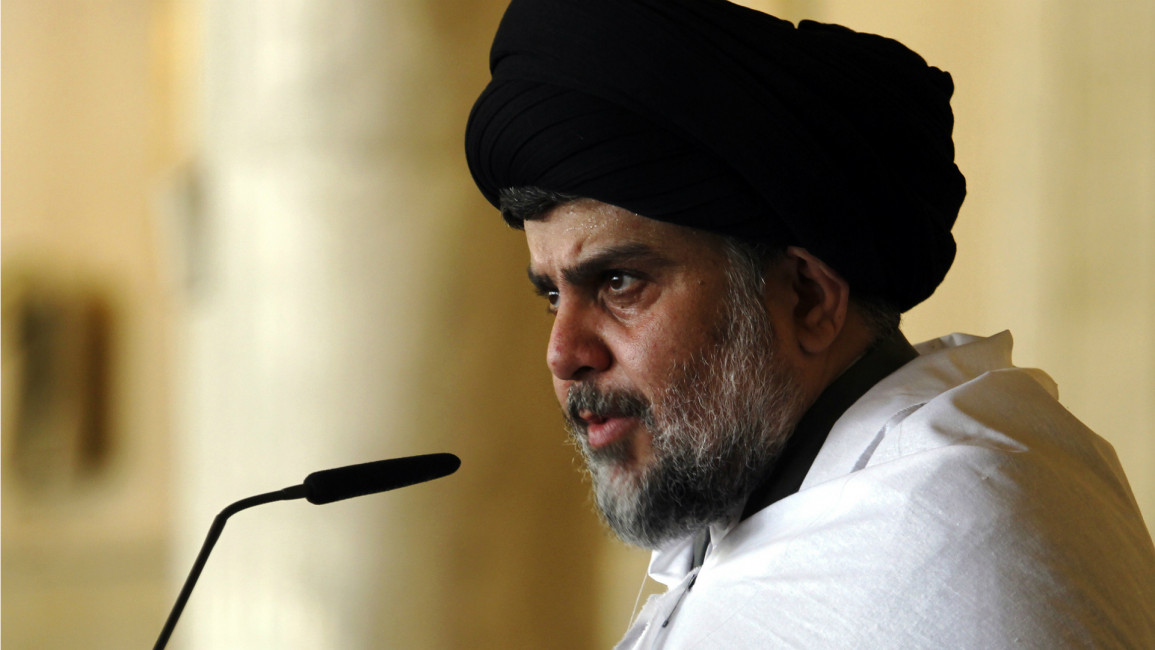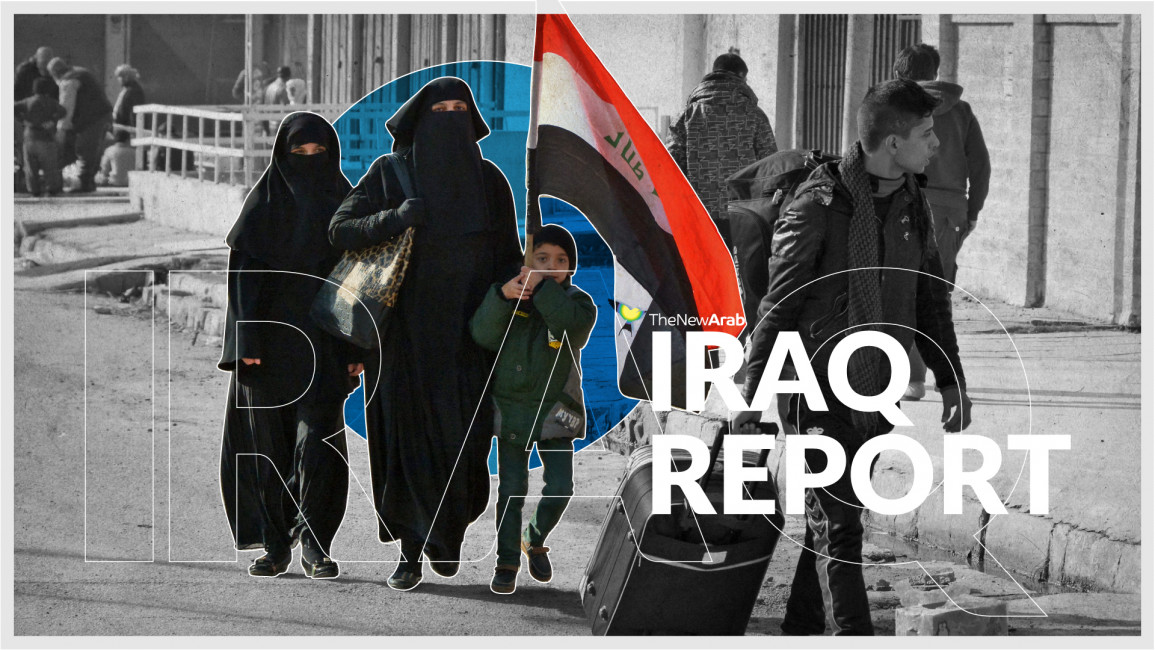
The Iraq Report: Sadr subverts his own election victory

With the Iraqi Federal Supreme Court finally resuming its activities after suspending them due to a protest by supporters of controversial cleric and political agitator Muqtada al-Sadr, questions have been raised about the Shia leader’s own credentials after he tried to force Iraq’s highest court to overturn last year’s election result.
With Sadr raising doubts over the legality of the elections he himself had won, there are signs that Iraq’s disparate political forces are manoeuvring to seal a deal that will finally see a government formed 10 months after the vote.
Kurdish groups and Sunni coalitions are moving closer to overtly Iran-sponsored parties in a move that may sideline Sadr and dampen his rising star once again.
"Muqtada al-Sadr may find that he will face significant blowback from the risky gamble he took over the summer to have all his deputies resign their parliamentary seats"
Sadr may be marginalised after Supreme Court gambit fails
With feelings of public fury and apathy at the Iraqi political process growing rapidly and in equal measure, there are signs that the players involved in last year’s elections are starting to cut deals that will not only bring about a new government but will also marginalise the election winner.
Muqtada al-Sadr, the leader of the Sadrist-led Sairoun coalition that won last year’s poorly attended vote, may find that he will face significant blowback from the risky gamble he took over the summer to have all his deputies resign their parliamentary seats, effectively ceding them to his erstwhile rivals in the Coordination Framework.
His most recent gambit last Wednesday was to threaten and then blockade the Federal Supreme Court, demanding that Iraq’s most powerful judges issue a ruling to order new elections and to overturn October’s result – which was almost entirely in Sadr’s favour and gifted him more than 50 seats in parliament.
Initially, the Supreme Court announced that it would cease its activities and close its offices as it could not conduct its business while being besieged by Sadrist protesters. However, the Shia leader has now called on his followers to withdraw from Iraq’s highest court, leading to it announcing it is once more open for judicial business.
“In light of the withdrawal of the demonstrators and the lifting of the siege on the headquarters of the Supreme Judicial Council and the Federal Supreme Court, it was decided to resume work normally in all courts as of tomorrow morning,” the Supreme Judicial Council said.
Sadr’s lifting of the siege against Iraq’s most senior judicial institutions represents the latest setback the cleric has faced in his quest for power.
Having largely handed his bloc’s seats over to his would-be rivals in the Coordination Framework – an umbrella group of overtly pro-Iran groups – increasing their share to a point where they can realistically form alliances to end the deadlock, Sadr has called on his followers to repeatedly take to the streets to demand early elections and the dissolution of parliament.
In the space of a week starting at the end of last month, the Iraqi parliament was stormed twice by the cleric’s diehards, who took numerous photographs from inside the supposedly heavily fortified building, suggesting that the Iraqi security forces either did not want to get involved in what is clearly a political dispute, or else they did not want to risk a clash with Sadr’s heavily armed militia.
The Sadrists then left and occupied spaces in Baghdad’s Green Zone, once a symbol of American dominance over the war-torn country and now the home to many foreign embassies and Iraq’s chronically unstable state institutions and ministries.
|
|
However, rather than having the run of the place, Sadr’s opponents in the Coordination Framework began to rally their grassroots, leading to “indefinite” demonstrations and counter-protests taking place, drawing battle lines in the upcoming struggle for dominance over Iraq’s fraught political space.
With both sides fielding heavily armed militias, the risk of a Shia civil war is very real, even as the parties involved clearly do not want that to happen. However, with so many people in the streets and with weapons flowing so easily, any accident caused by rogue elements could swiftly degenerate into all-out bloodshed.
This underscores the reality of the fragility of Iraq’s institutions and political process, as an explosion of violence can happen at any time. This has historical precedent, as several armed clashes have taken place between protesters and security forces, and even between non-state groups, during previous protest movements.
"Kurdish groups and Sunni coalitions are moving closer to overtly Iran-sponsored parties in a move that may sideline Sadr and dampen his rising star once again"
Meanwhile, Sadr’s one-time Sunni Arab and Kurdish allies, who felt betrayed by the mercurial tendencies of the notoriously unpredictable cleric, have made overtures to the Coordination Framework and are looking to cut a deal to maintain their political gains.
This would mean that incumbent Parliamentary Speaker Mohammed al-Halbousi will be likely to keep his post, while the ruling Kurdistan Democratic Party (KDP) in Erbil would also strike an agreement over a mutually acceptable candidate for president.
Once the post of president is filled, the Coordination Framework will then be able to put forward a suitable candidate for prime minister, effectively completing Iraq’s triumvirate of senior political offices, and cementing the status quo that has led to almost two decades of instability since 2003.
Landslide highlights religious profiteering
However, another issue that has caused long-term anger in Iraq is how closely intertwined religious figures are with the political process, leading to unqualified and inexperienced views being aired by clerics who then directly influence politics.
This has led to significant incompetence in governance as well as rampant corruption, and the confluence between the two was highlighted by a deadly landslide in Karbala this week after a Shia shrine was the site of another tragic loss of life that could have been avoided.
According to the BBC and other sources, the landslide that killed eight people occurred after the hill overlooking the shrine was found to have been weakened by damp, despite Iraq going through a summer that has seen no precipitation and 50-degree heat.
|
|
The Quttarat al-Imam Ali shrine is said to be based on a site where the fourth Muslim caliph, Ali bin Abi Talib, stopped with his army in the desert on the way to a decisive battle. As his army was struggling with thirst, he was said to have struck a rock from which burst forth a miraculous spring of water.
While there is no historical evidence to support this claim, the shrine has nevertheless been visited by pilgrims for the supposed restorative and curative properties of its waters that Shia religious authorities have claimed are blessed and can alleviate sickness.
However, and as Iraqi journalists, including UTV’s Husam Alkaabi, have revealed, the water in fact comes from a very modern well that was illegally dug nearby, and its waters piped over to the shrine’s site directly through the hill that overlooked it.
The piping – now unearthed following the landslide – appeared to still be leaking water at the time of Alkaabi’s video report, suggesting that it had been gradually eroding the hill that may have led to its collapse over the shrine and the pilgrims visiting it.
"There are signs that the players involved in last year's elections are starting to cut deals that will not only bring about a new government but will also marginalise the election winner"
This and other reports have enraged Iraqis who fear that a corrupt religious elite is hoodwinking the populace into not only following their politicised edicts but also effectively selling them snake oil. Each bottle of the supposedly blessed water costs approximately 5,000 dinars ($3.43), per Alkaabi, in a country where the minimum wage is currently around $240 a month.
There are further concerns that the same Shia clerical class who wield political influence are also facilitating an illicit sex trade in girls as young as nine-years-old, as highlighted by the BBC in a documentary on so-called “pleasure marriages”.
These scandals are causing even Iraqis who supported the overthrow of the Saddam Hussein regime in 2003, and who believed that a free and fair society based on their religious beliefs would take root, to turn sour on the government and the political process that underpins it.
Although this certainly cannot explain why voting turnouts are exceptionally low at around only two-fifths of the eligible electorate, it is undoubtedly a contributing factor in how so many Iraqis across the ethno-sectarian divide have reached the end of their tether and are actively opposing and boycotting an ever-elusive democracy.
The Iraq Report is a regular feature at The New Arab.
Click here to see the full archive.





